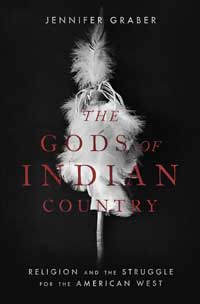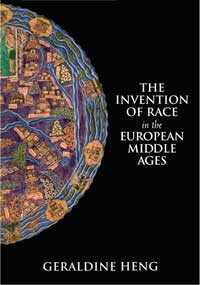
The Invention of Race in the European Middle Ages
Cambridge University Press, March 2018
By Geraldine Heng, associate professor, Department of English
Questioning the common assumption that race and racisms began in the modern era, Heng argues that religion — so much in play again today — enabled the positing of fundamental differences among humans that created strategic essentialisms to mark off populations for racialized treatment. This groundbreaking study shows how race figured in the emergence of homo europaeus and the identity of Western Europe.
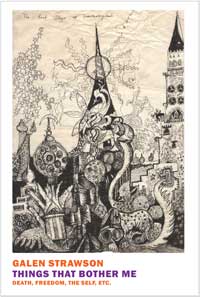
Things That Bother Me: Death, Freedom, The Self, Etc.
New York Review Books, March 2018
By Galen Strawson, professor, Department of Philosophy
A collection of essays published more than 20 years on the sense of the self; on the “unmysteriousness” of consciousness; on what it is to have a genuinely “naturalistic” outlook; on the pros and cons of the “narrative” outlook on life; on the prospects for free will; and differing attitudes to death.
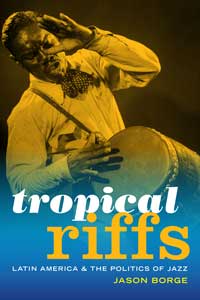
Tropical Riffs: Latin America and the Politics of Jazz
Duke University Press, March 2018
By Jason Borge, associate professor, Department of Spanish and Portuguese
Across Latin America jazz functioned as a conduit through which debates about race, sexuality, nation, technology and modernity raged in newspapers, magazines, literature and film. Figures such as Josephine Baker, Duke Ellington, Dizzy Gillespie and Charlie Parker represented the promises of modernity in the region while simultaneously posing a threat to local and national identities.
The Gods of Indian Country: Religion and the Struggle for the American West
Oxford University Press, March 2018
By Jennifer Graber, associate professor, Department of Religious Studies
During the 19th century, Americans inflicted cultural and economic devastation on Native people. The fight over Indian Country sparked spiritual crises for both Natives and Americans. In the end, the experience of intercultural encounter and conflict over land produced religious transformations on both sides.

The Sounds of Navajo Poetry: A Humanities of Speaking
Peter Lang, March 2018
By Anthony K. Webster, professor, Departments of Anthropology and Linguistics
The Sounds of Navajo Poetry analyzes five poems by Navajo poet Rex Lee Jim in order to think through questions of linguistic relativity and translation. In fundamentally rethinking linguistic relativity, this book argues for a humanities of speaking that attends to poetics as a key site for coming to terms with the ways languages facilitate imaginative acts.
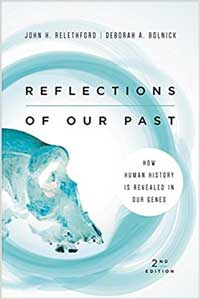
Reflections of Our Past: How Human History is Revealed in Our Genes, 2nd edition
Routledge, March 2018
John H. Relethford and Deborah A. Bolnick, associate professor, Department of Anthropology
The rise of the multibillion-dollar ancestry testing industry points to one immutable truth about us as human beings: We want to know where we come from and who our ancestors were. Using nontechnical language, Reflections of Our Past shows how anthropologists use genetic information to suggest answers to fundamental questions about human history.
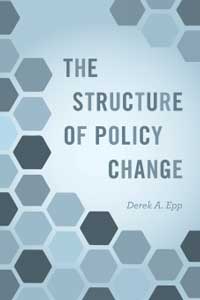
The Structure of Policy Change University of Chicago Press, April 2018 By Derek A. Epp, assistant professor, Department of Government
This book explores how governments, when they process information more meticulously, can better react to environmental stimuli, reducing the prevalence of incremental changes and the magnitude of sudden policy punctuations.

Giant: Elizabeth Taylor, Rock Hudson, James Dean, Edna Ferber, and the Making of a Legendary American Film
St. Martin’s Press, April 2018
By Don Graham, professor, Department of English
Giant offers a larger-than-life narrative of the classic film based on Edna Ferber’s best-seller. Isolating his star cast in Marfa in the summer of 1955, director George Stevens had his hands full with Rock Hudson’s insecurities, Elizabeth Taylor’s high diva-dom, and James Dean’s rebellious temperament. Yet he coaxed performances out of them that made cinematic history.
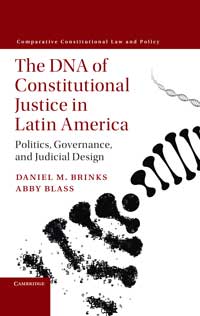
The DNA of Constitutional Justice in Latin America: Politics, Governance and Judicial Design
Cambridge University Press, April 2018
By Daniel M. Brinks, associate professor, and Abby Blass, Ph.D. candidate, Department of Government
This book traces the development of constitutional courts in Latin America and develops concepts such as judicial autonomy and authority. It aims to help readers understand the design of judicial institutions and combines qualitative and quantitative evidence to explore the basic purpose of constitutional justice.
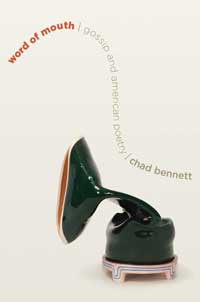
Word of Mouth: Gossip and American Poetry
Johns Hopkins University Press, May 2018
By Chad Bennett, assistant professor, Department of English
Can the art of gossip help us to better understand modern poetry? Gossip’s ostensible frivolity may seem at odds with common conceptions of poetry as serious, solitary expression, but Word of Mouth explores the dynamic relationship between gossip and American poetry, uncovering the unexpected ways modern lyric intertwined with histories of sexuality in the 20th century.

Thinking About Things
Oxford University Press, May 2018
By Mark Sainsbury, professor, Department of Philosophy
In a flash, I can redirect my thought from London to Austin, from apples to unicorns, from former President Obama to the mythical flying horse, Pegasus. How is this possible? How can we think about things that do not exist, given that they are not there to be thought about?
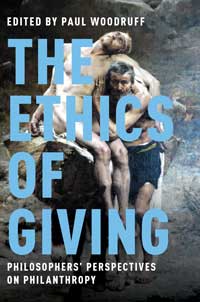
The Ethics of Giving: Philosophers’ Perspectives on Philanthropy
Oxford University Press, May 2018
Edited by Paul Woodruff, professor, Departments of Philosophy and Classics
On what ethical basis should we decide where to make our philanthropic gifts? To local or distant charities? To save lives, or to enhance the arts or education? In this volume, philosophers apply different ethical theories to these questions and arrive at different results.
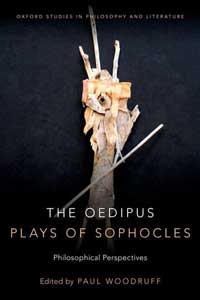
The Oedipus Plays of Sophocles: Philosophical Perspectives
Oxford University Press, June 2018
Edited by Paul Woodruff, professor, Departments of Philosophy and Classics
Sophocles’ Oedipus is the icon of a man who does not know himself. In this volume, philosophers discuss barriers to self-knowledge along with an old man’s quest for serenity. And they explore the tragic question: Is it better not to be born at all, or better, once born, to die young rather than live a long life?
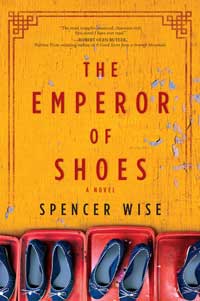
The Emperor of Shoes
HarperCollins, June 2018
By Spencer Wise, M.A. English ’09
The Emperor of Shoes is a novel set in contemporary South China about a young Jewish man from Boston preparing to take over the family footwear business from his father. The protagonist, however, falls in love with a factory worker who’s using him as a pawn to start a revolution in the factory.
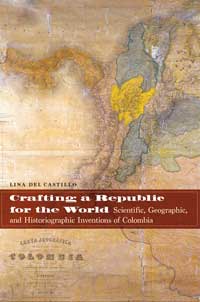
Crafting a Republic for the World: Scientific, Geographic, and Historiographic Inventions of Colombia
University of Nebraska Press, June 2018
By Lina del Castillo, assistant professor, Department of History
In the wake of independence, Spanish American leaders perceived the colonial past as looming over their present. This book examines how the vibrant postcolonial public sphere in Colombia invented narratives of the Spanish “colonial legacy.” At times collaboratively, and at times combatively, Colombian leaders tackled these “colonial” legacies to forge a republic in a hostile world of monarchies and empires.
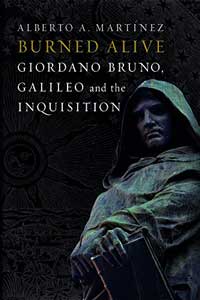
Burned Alive: Giordano Bruno, Galileo and the Inquisition
Reaktion Books distributed by University of Chicago Press, May 2018
By Alberto A. Martinez, professor, Department of History
In 1600, the Roman Inquisition condemned Giordano Bruno to be burned alive at the stake. Sixteen years later, the same inquisitors investigated Galileo Galilei. Newfound evidence links the trials of the two men, who both held cosmological views that were considered to be religious crimes.
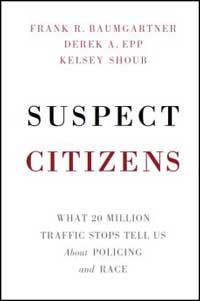
Suspect Citizens: What 20 Million Traffic Stops Tell Us About Policing and Race Cambridge University Press, June 2018
By Frank R. Baumgartner; Derek A. Epp, assistant professor, Department of Government; and Kelsey Shoub
Suspect Citizens offers the latest, most comprehensive look at a common form of police-citizen interaction: the routine traffic stop. It documents the extreme rarity of drug busts and reveals the ongoing and troubling disparities in how racial groups are treated.

Erotic Islands: Art and Activism in the Queer Caribbean
Duke University Press, June 2018
By Lyndon K. Gill, associate professor, Department of African and African Diaspora Studies
This book explores the queer histories of Carnival, calypso and HIV/AIDS in the Republic of Trinidad and Tobago. In an extension of Audre Lorde’s use of the erotic as theory and methodology, Gill turns to lesbian/gay artistry and activism as an intertwined, political-sensual-spiritual lens through which to see self and society.

Encounters between Jesuits and Protestants in Asia and the Americas
Brill, Aug. 2018
Edited by Jorge Cañizares-Esguerra, professor, Department of History; Robert Aleksander Maryks and Ronnie Po-chia Hsia
Derived from research presented at an international symposium, this volume reveals a far more complicated relationship between Protestants and Jesuits as co-creators of the bright and dark sides of modernity, including the public sphere, public education, plantation slavery and colonialism.

Shekhar: A Life
Penguin, Aug. 2018
Translated by Snehal Shingavi, associate professor, Department of English; and Vasudha Dalmia
Regarded as one of the most influential Hindi novels of all time, Shekhar powerfully reimagines the journey of an outspoken young revolutionary in pre-independence India. This sparkling new translation brings to life the psychological acuity and literary richness of Agyeya’s most profound work.

